HCM City thirsty for skilled tourism labourers
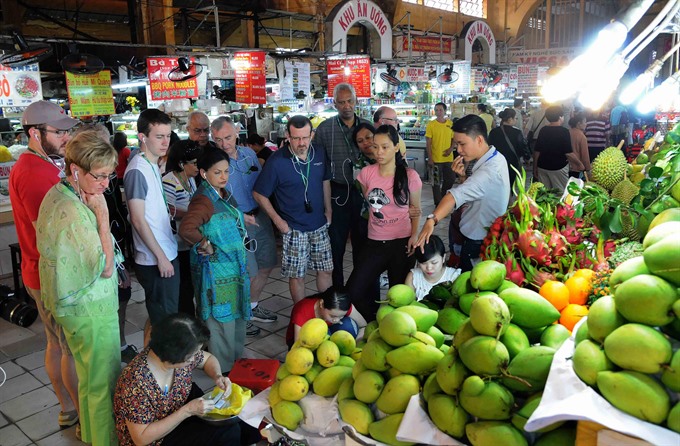 |
| A tour guide (first right) introduces the Bến Thành Market in HCM City to tourists. The city’s tourism sector is struggling with a lack of qualified human resources. – VNA/VNS Photo An Hiếu |
According to the National Administration of Tourism, HCM City’s tourism sector needs roughly 40,000 new workers added to the labour pool each year. Last year, only 37 per cent of demand was met with 15,000 workers joining the sector, with merely 12 per cent of them educated to college level.
A college degree in tourism, however, does not guarantee that a worker that can do the job.
Nguyễn Hải Linh, investor of the luxurious, high-end Elisa floating restaurant on the Sài Gòn River, admitted the high labour demand of tourism companies in the city but said they rarely employed tourism students. The reason for this was that most of the students had “very weak working skills”.
“They are adept in theories, but short of practical skills,” Linh said.
“Many restaurants and hotels were forced to recruit untrained but experienced workers.”
An investor of the Cathay hotel chain in HCM City also said that recruiting employees with degree proved to be “extremely hard”.
The hotel did hire employees with degrees, but many of them had a poor attitude towards customers, she said.
“Furthermore, some 40 per cent of our Cathay hotels’ customers are foreigners, which means employees must have decent foreign-language skills,” she added.
Foreign languages are still the biggest weakness of Vietnamese students, including those who study tourism.
Fixing college education
HCM City University of Culture’s Tourism Faculty Head Mai Hà Phương said the low training quality of tourism employees resulted from a lack of a proper training curriculum in tourism.
It seemed like “mission impossible” for colleges and universities to develop a good tourism curriculum on their own due to limited budget, lack of capabilities of lecturers and management mechanisms, Phương said.
“Using a foreign curriculum was also ruled out as the content, the subjects and their credits were very different to the universities’ programme, while it is very costly to buy the curriculum’s copyrights,” she added.
Sài Gòn University lecturer Nguyễn Thị Hồng Trang said educational institutions should develop a long-term strategy on raising the quality of lecturers.
“They (the universities) have to force the lecturers to do serious research while at the same time, employing those with master and PhD degrees currently working for tourism enterprises to lecture on tourism skills,” she said.
University-enterprise linkage
Inviting experienced employees of tourism companies to teach at universities is one way to raise training quality based on closer connections between educational institutions and tourism enterprises.
Another initiative of this kind is to give the students more time at the companies learning practical skills, for example, the “Enterprise Term” developed by the HCM City University of Technology (HUTECH).
The students on this programme will be exempted from learning a particular subject at school if they study the subject while working for an enterprise linked with the school.
HUTECH’s Tourism – Hotel Faculty Head Nguyễn Quốc Thắng said city authorities should devise policies to call for more co-operation from enterprises in tourism education and training.
“HCM City should also work with the enterprises and the educational institutions to establish a committee on promoting the tourism human resources to consult authorities on solutions to develop city tourism in general and tourism human resources in particular,” he said.
What the stars mean:
★ Poor ★ ★ Promising ★★★ Good ★★★★ Very good ★★★★★ Exceptional
Latest News
More News
- Vietnamese community in India stays united, contributes to homeland (April 15, 2024 | 11:42)
- Dien Bien Phu Victory celebrated in France (April 15, 2024 | 11:37)
- Vietnamese Embassy in Israel issues warning amid escalating tension (April 15, 2024 | 08:00)
- ADB forecasts 6 per cent growth for Vietnam (April 12, 2024 | 17:17)
- SCB, Van Thinh Phat execs convicted of embezzlement; Truong My Lan sentenced to death (April 12, 2024 | 09:59)
- Finnish kindergarten opens in Hanoi (April 12, 2024 | 09:50)
- Over 746 tonnes of rice allocated to Dien Bien, Bac Kan provinces in between-crop period (April 12, 2024 | 08:54)
- Truong My Lan sentenced to death in major bank fraud case (April 12, 2024 | 08:49)
- Netflix ordered to stop distributing unauthorised games in Vietnam (April 11, 2024 | 17:06)
- Deputy PM highlights incentive policies for rooftop solar power installation (April 11, 2024 | 17:03)



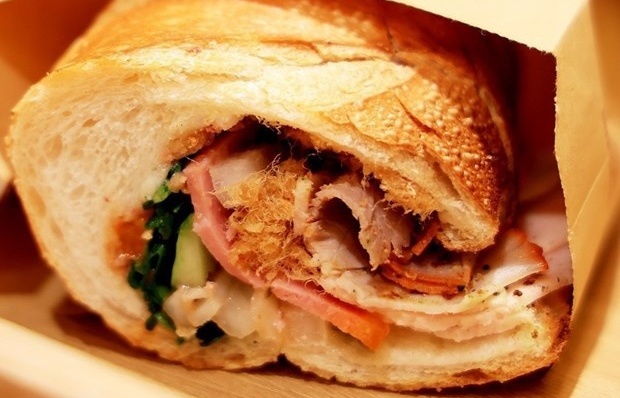
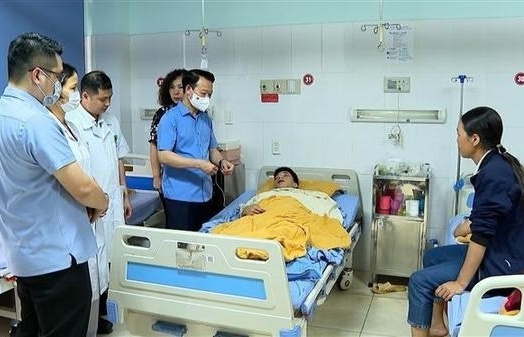
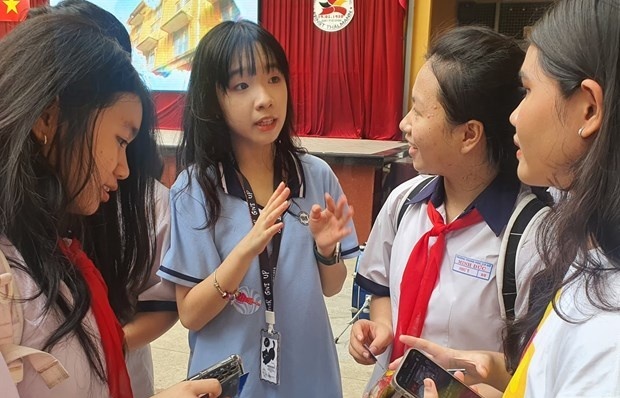
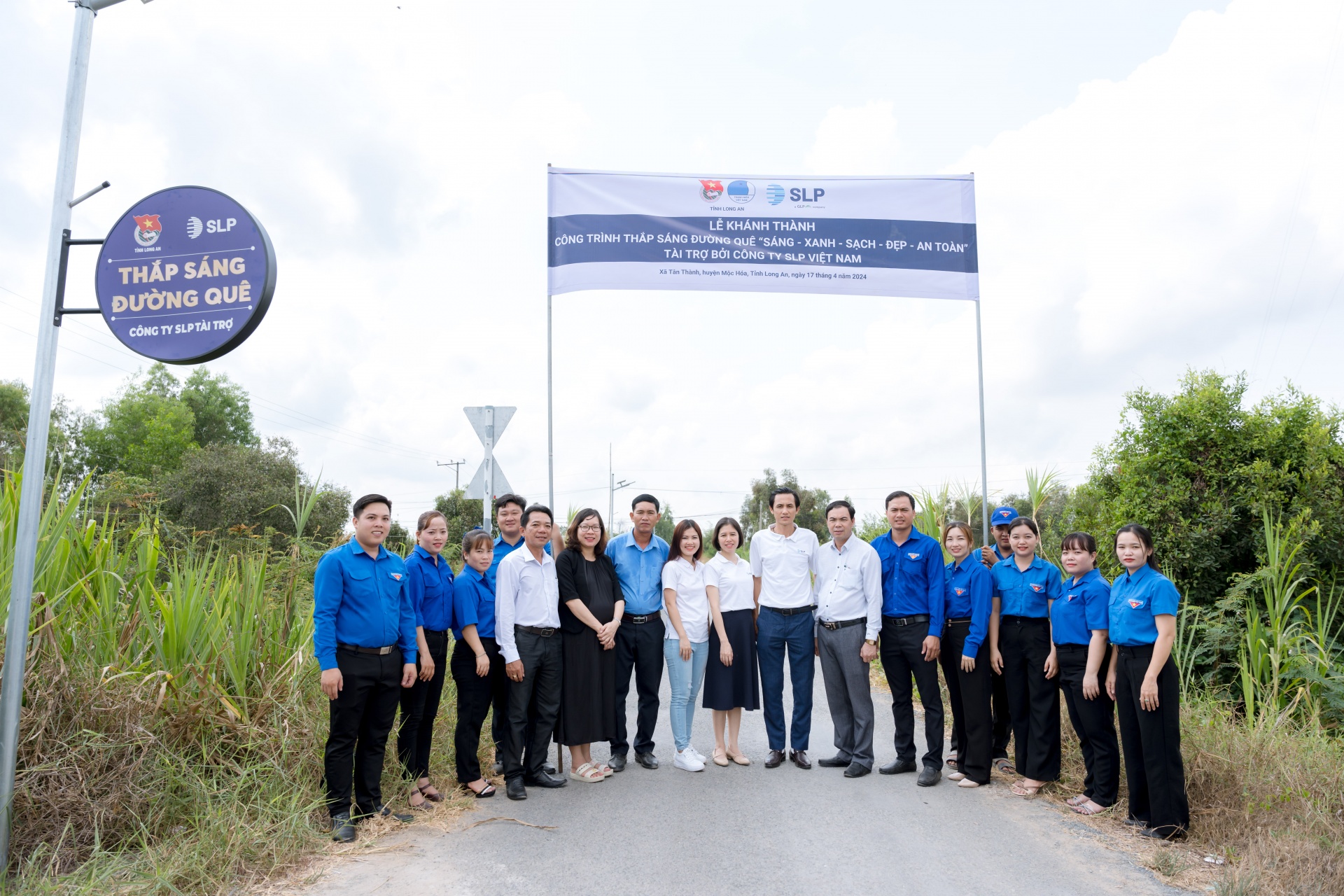
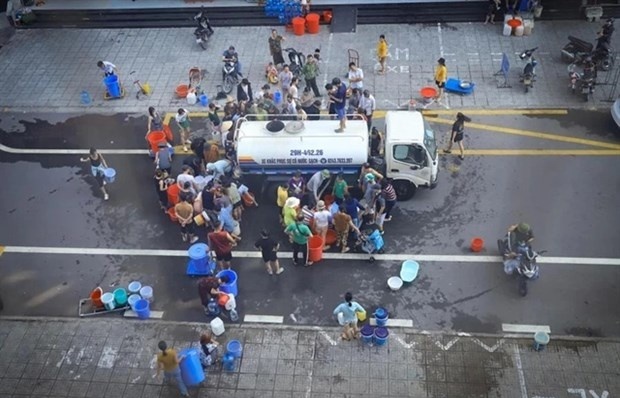
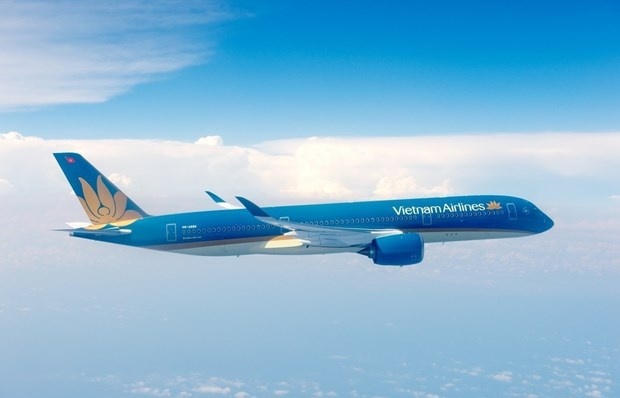


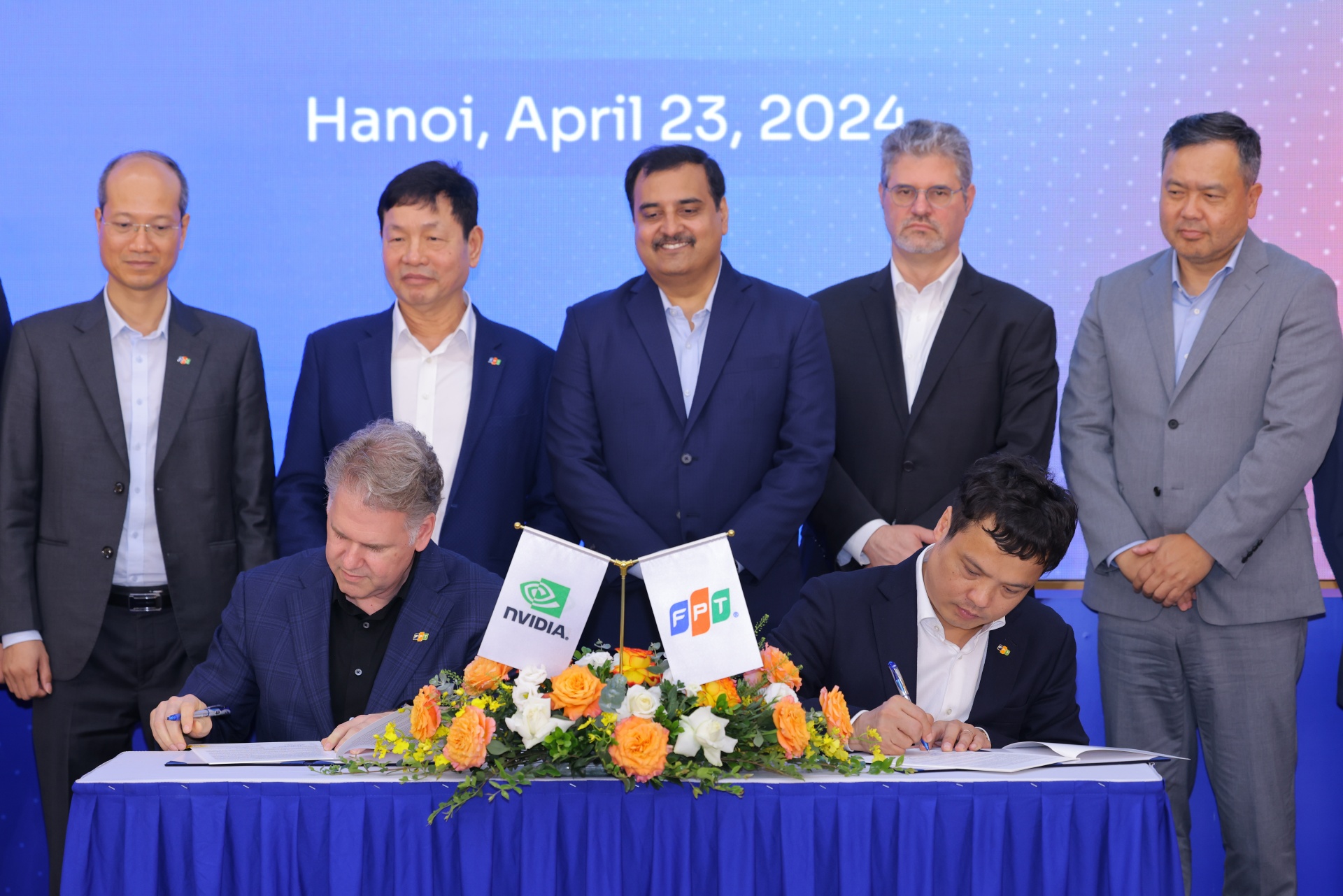
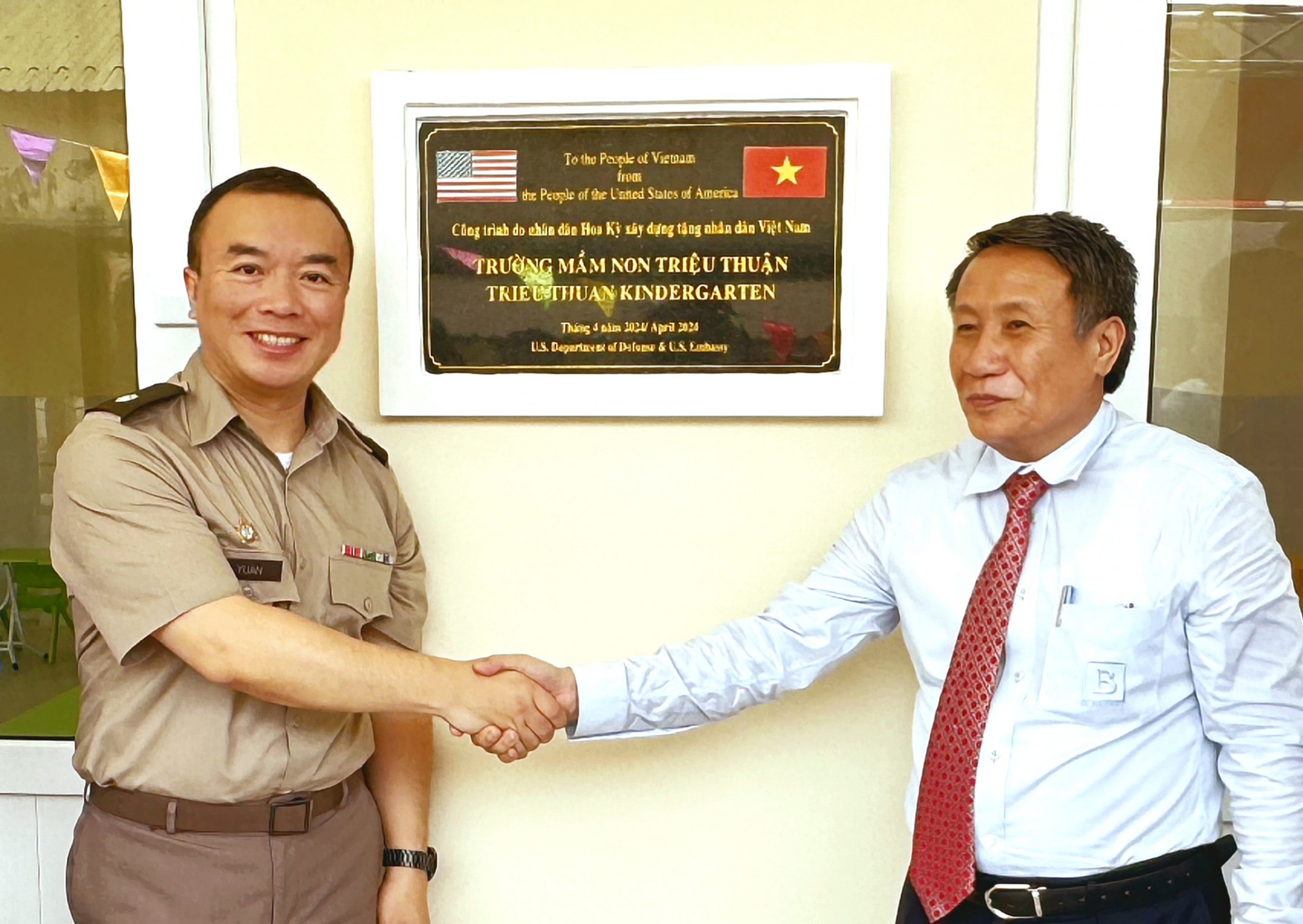
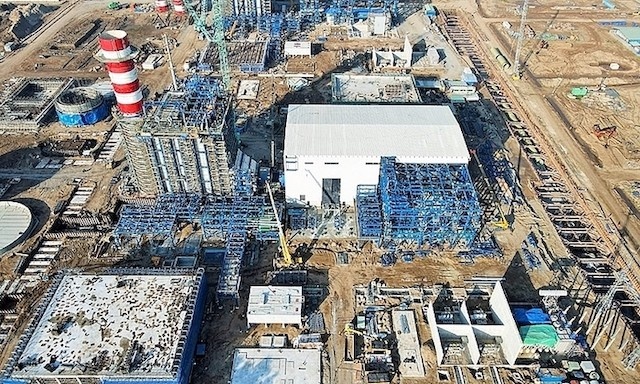




 Mobile Version
Mobile Version